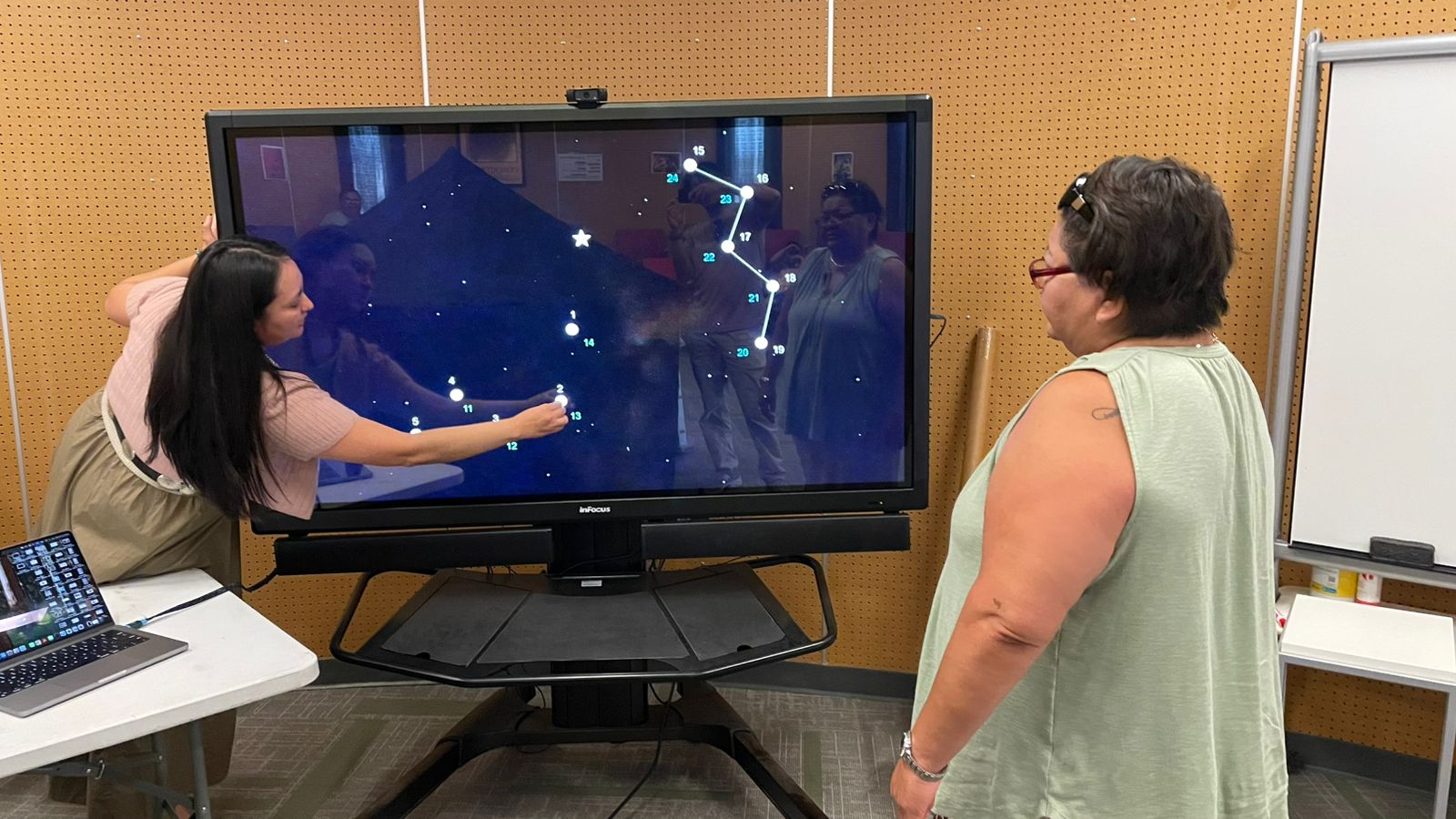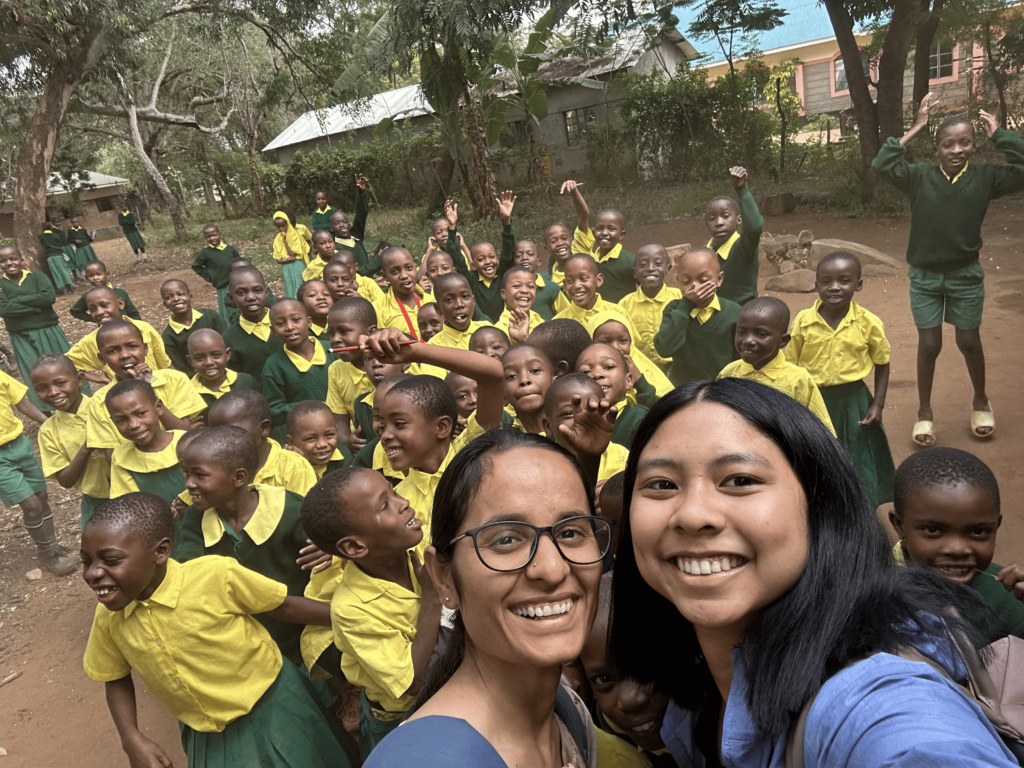
When Longyu Gong describes life in Shanghai, China, she doesn’t just talk about the scenery but about connection, or rather, the lack thereof.
“It’s a very beautiful, modern city,” Gong said. “But people aren’t interacting with their neighbors or building an identity together.”
She would know — she studied urban communities at Tongji University in Shanghai, a city of more than 20 million residents that moves as quickly as it grows. The skyline is sleek and the streets are busy, but daily life, she explained, often feels disconnected.
Some of that, Gong believes, comes from the stress of work, but more deeply, it’s about design — the structure of the city itself isn’t made to encourage people to communicate or spend time together.

That absence of connection, Gong believes, is as much an engineering problem as it is a social one, and it’s what brought her to UC Berkeley’s Master of Development Engineering program.
This August, Gong joined 27 fellow students at Blum Hall to kick off orientation for the fifth-ever cohort of the MDevEng program.
Together, the cohort brings experience spanning data science, medicine, material science, policy, and more, and will spend the next 15 months in an intensive program that blends technical training with human-centered development courses — preparing them for careers in social impact, entrepreneurship, design, and sustainability.
Between introductions, group exercises, and the occasional jet lag, students heard a recurring message from orientation speakers like Blum Center Faculty Director Dan Fletcher and DevEng chair Kara Nelson: pursue curiosity and take charge of your own learning.
“Berkeley is very much a university where initiative and self-motivation get you the most,” Fletcher said. “Berkeley is very much a smorgasbord, a buffet, and you need to figure out what it is you’d like to learn and what experience you’d like to have.”
The vital work of Development Engineering has grown more challenging and more essential in light of recent federal funding cuts and shifting government policies that have affected academia as a whole, according to Fletcher.
During the orientation, he addressed these challenges upfront, reminding students that there will always be a need for their work, even as newfound obstacles arise.
“The work we’re trying to do here is aimed at making the world a better place,” Fletcher said. “The needs are there, and the ability of each of us to make a positive impact is still there, so we can’t be dissuaded.”
His message resonated with the new students, many of whom are already eager to apply their skills to pressing global issues. Among them is Noam Anglo, who plans to focus on Healthcare Transformations during his time at Berkeley.

Born in the Philippines and raised in Canada, he studied mechanical engineering at the University of Calgary. In the years that followed, he moved through industries as varied as healthcare, robotics, and entrepreneurship, yet something about the work felt incomplete.
“I’m an engineer and I want to do engineering, but I just needed to figure out how to apply that in the context that is most meaningful to society,” Anglo said.
That search for meaning brought him to Berkeley. Building on his roots in the Philippines, Anglo hopes to work with underserved communities around the world — from Southeast Asia to sub-Saharan Africa — and to find ways for technology to “distribute power to individuals.”
None of the other programs he considered offered the blend of technical rigor and social purpose he was looking for, until he found Development Engineering.
At Berkeley, Anglo hopes to explore new fields such as agroecology and sociology, while also studying sanitation systems with Prof. Nelson, an expert in safe water and sanitation for resource-limited environments. He sees the MDevEng program as a place to learn how engineering can directly solve humanitarian problems around the world.
Anglo said the community has already made an impression, as he is surrounded by classmates who take initiative and think big — an environment radically different from the one during his undergraduate years.
The energy, he said, has pushed him to aim higher and see new possibilities for how engineering can serve society.
“Even in the week before classes, I’ve met so many people who are really stubborn and try to think long term about the social impact they can make in their careers,” Anglo said. “I want to meet more of those kinds of people.”
Sharing that drive is fellow MDevEng student Alejandro Rodriguez, who is equally passionate about bridging the gap between technical innovation and social impact.

With a background in biomedical and industrial engineering from the Universidad de los Andes in Colombia, Rodriguez said he began to notice a troubling disconnect between the priorities of the engineering industry and the real needs of the communities affected by its work.
He emphasized that technical expertise alone isn’t enough to address society’s most pressing issues; engineers must also grasp how their work impacts society, politics, and people’s daily lives.
That conviction is what ultimately led him to the MDevEng program, where technology and social impact meet by design.
“I think that this program really cares about its application and how we impact society,” Rodríguez said. “It really cares about how we can help.”
As part of the program, he hopes to strengthen his skills in technology tools and policy intervention, and is particularly interested in using data to understand real-world social dynamics through his chosen concentration, AI & Data Analytics for Social Impact.
Rodríguez, alongside the rest of the new cohort, will spend the next three semesters tackling technical challenges, collaborating across cultures, and working on community-driven projects — culminating in a summer internship and a capstone project that puts their ideas into practice.
With opportunities to test those ideas through initiatives like the Blum Center’s Big Ideas Contest, students will take what they learn in the classroom and apply it to social and humanitarian projects around the world.
“You’re embarking on a journey,” Fletcher told the cohort. “We hope to empower you to make the kind of positive change that you want to make in the world.”




